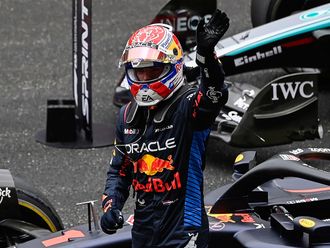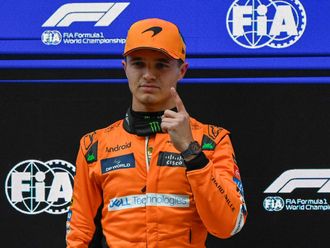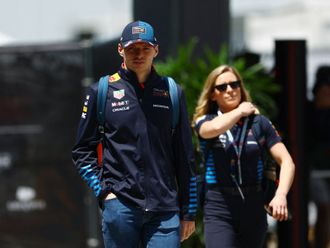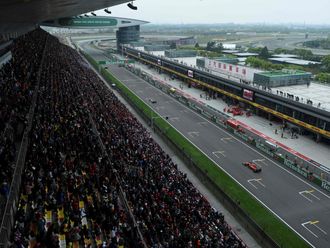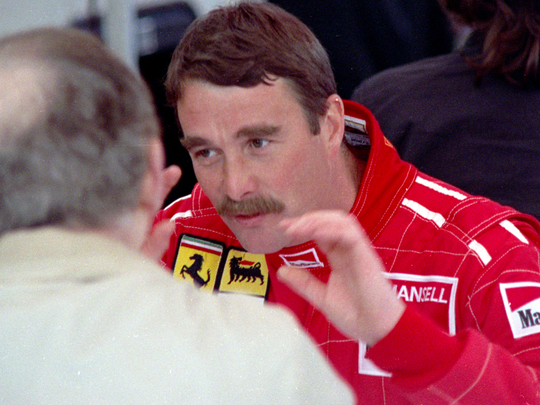
We are all heavily influenced by what – and who – we see on TV and the internet. It’s an inescapable fact. For a long time, people like me believed that the screens at which we stare reflected life rather than the other way around.
This argument, however, was blown to pieces when the Burmese government introduced cable TV to the country in the late nineties. Before you could say “Kim Kardashian”, the once quiet and unassuming monks that had for centuries lived in total isolation and harmony wanted Playstations and Castrol GTX for their tractors.
It’s clear, too, that it’s not just children who want to be and act just like the people they see on TV, this is something that extends to a lot of people south of 30. It’s fair to say we have all aspired to be someone off the telly at some point in our lives.
There is, however, a twist.
If we’re so influenced by the people we see on TV and the internet, why aren’t we all walking around talking like Eamon Holmes or the Earl of Wessex? These are famous, wealthy people, just like Brad and Angelina, but I’ve never met anyone who wants to dress up in regal military attire, shave the top of their hair off and say “What ho!” while playing polo.
The problem is that they’re not cool enough. They are both respected people – sort of – and are deeply professional, but where’s the risk? Why aren’t they smashing down boundaries and causing a stir?
This, somehow, brings me to the point of today’s missive, and that of Formula 1 drivers and their role as role models.
You may have heard last week that reigning Formula 1 World Champion Lewis Hamilton was turned away from the Royal Box at Wimbledon for failing to adhere to the strict dress code.
Ok, if a dress code is stated on an invitation, then it’s only polite that you adhere to the request. Wimbledon is a bit of a stuffy old event, but tradition counts for a lot. However the point I’m trying to make is that you can’t take away from the fact that Lewis Hamilton was being himself. Isn’t that what we all want to see? Well, not the Wimbledon organisers, plainly.
Ever since Gold Leaf first appeared on the Lotus cars of 1968, sponsorship has always had a degree of influence on Formula 1 – as with any sport. However the more money that gets invested by sponsors, the more influence they have, and this has only really started to impact negatively over the last 15 or so years.
Today, Formula 1 drivers have to toe the company line, they are advertising mechanisms who must smile at the camera and pretend that all is well, even if their car is upside-down and on fire. If two drivers are involved in a collision on track, they may be permitted to tut and wag their fingers, but not permitted to start throwing punches.
Ok, we don’t want to see two professional drivers beat twelve bells out of each other, that really would send out the wrong message, but we want them to be a bit less robotic and a bit more human.
It’s fairly clear that this year Fernando Alonso and Jenson Button aren’t happy with Honda, but why not just come out and say that? Why smile for the cameras and say Honda is doing their best? Their careers are on the line here, why not make that clear?
Do you remember some of Nigel Mansell’s outbursts in the pit lane? What about Ayrton Senna and his candid press conferences about Alain Prost? Would Nelson Piquet stand there, in front of the cameras after exploding on lap one, and with rational diplomacy say “we still have work to do, but we must stick together”? No, he’d go mad and tell the team to get it sorted or he’d be off.
Alain Prost openly criticized Ferrari in 1991 and was fired as a result. The car wasn’t very good, and he said so. He didn’t care who he upset, he was showing his passion.
James Hunt was another classic example of drivers being themselves. I even remember seeing him in Wimbledon Village regularly when I was young, cycling barefoot in a pair of ripped jeans and an old t-shirt.
Rough heroes who aren’t afraid to speak their minds and act how they please are always going to be more popular, and herein lay the paradox. Sponsors are entrusting their brands to the teams, but really it’s the drivers who will give them the most exposure. By telling the team bosses to make sure that Johnny Racer keeps shtum and doesn’t ruffle too many feathers, they are creating boring droids who are less likely to become public darlings. People switch off for boring interviews. But the notion that Sebastian Vettel may start shouting will keep us tuned in.
Let Lewis Hamilton turn up at Wimbledon dressed as a chicken though, and you have increased your public exposure tenfold.
We’re not talking about letting our heroes do Class A drugs or beat each other up for fun, that would be deplorable. If Formula 1 is serious about having more of an influence (which is code for “sponsorship exposure”) then it has to adopt a more casual approach. Robotic yes-men who simply won’t cause controversy will never be popular. Let them speak their minds, let them wear what they want, and above all else, let them be human. And so what if they get turned away from a tennis match?
Don’t worry; you’ll still sell your oil to Burmese monks, they just might start shouting too.


